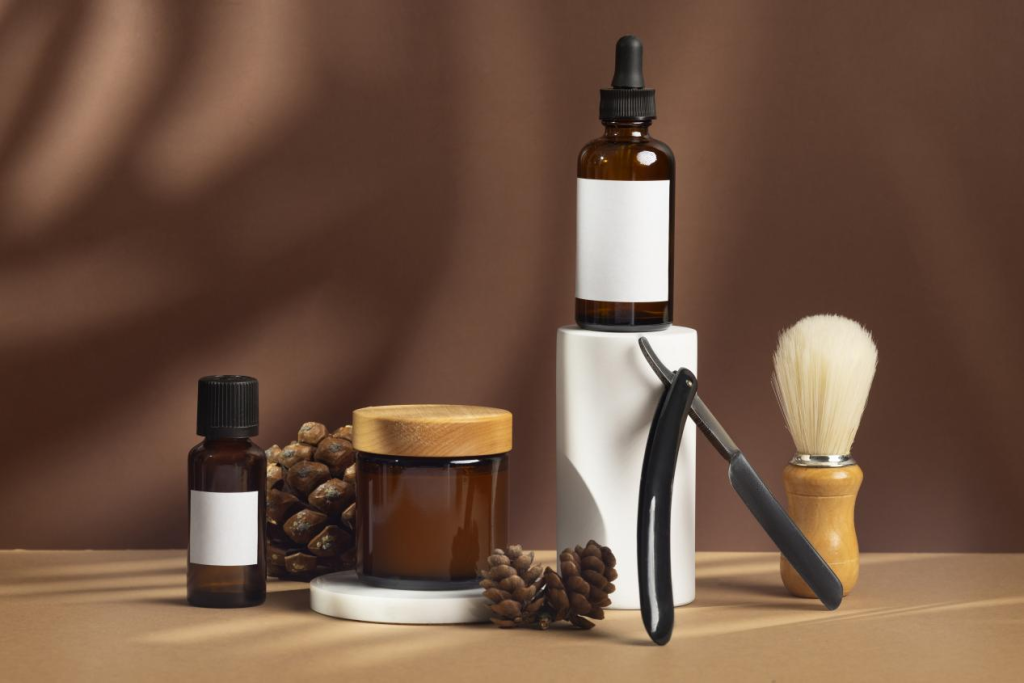Private Label Cosmetics vs Wholesale: A Comprehensive Analysis
In the evolving beauty and skincare products industry, you might be considering options to realize your creative vision. Whether you’re a business owner or a known brand the decisions you make about how you source your products can significantly influence your overall success. Two common models that are frequently discussed are producing label cosmetics and purchasing items. Each has its features and ramifications for your company. This article will delve into these methods. Contrast them to help you make an educated choice that aligns with your objectives.
WHAT ARE PRIVATE LABEL COSMETICS?
Before delving into the comparison process at hand let’s delve deeper into the essence of label cosmetics. Private label cosmetics pertain to a scenario where a manufacturer creates products that are subsequently branded and retailed under your unique label. To put it simply, you are formulating the products yourself rather than collaborating with a manufacturer.
Defining Private Label Cosmetics
Creating label cosmetics involves developing products based on a made formula or one that is customized to fit your requirements perfectly. This approach allows you to market items under your brand without having to create the formulas from scratch or oversee the production and distribution processes. TOPFEEL is an example of a company specializing in label cosmetics production that provides end-to-end services from designing products to ensuring top-notch quality control. You have the option to select from existing formulas or ask for a formulation that aligns with your brand’s identity and vision. The procedure also permits the customization of packaging.
Benefits of Private Label
- Brand Control: You have complete control over your branding, packaging, and marketing, allowing you to create a unique brand identity.
- Customization: You can customize product formulations and packaging to differentiate your products from competitors.
- Cost-Effectiveness: You can save on research and development costs, as you are not responsible for formulating the products.
- Flexibility: You can choose from a wide range of product options, including powders, lotions, and oils.
- Scalability: You can work with your manufacturer to increase or decrease production based on your demand.
Drawbacks to Private Label
Although there are benefits to labeling products it’s important to also think about the possible downsides:
- Minimum Order Quantities (MOQs)Private label manufacturers often have MOQs, which might be challenging for smaller businesses. For example, TOPFEEL has a MOQ of 12,000 pieces for plastic packaging and 3,000 pieces per shade for filling.
- Dependence on ManufacturerYou are reliant on your manufacturer for product quality, production timelines, and adherence to regulations.
- Lead TimeThere is a lead time involved in the manufacturing process, which might affect your ability to respond quickly to market changes. TOPFEEL has a lead time of around 7 days for samples and 45 days for mass production.
WHAT IS WHOLESALE MERCHANDISE?
Purchasing wholesale merchandise involves buying products in quantities from a supplier at a reduced price point of getting them individually at full cost from various sources or stores for retail purposes later without making any changes to the original brand or packaging materials used by the manufacturer involved in the transaction process.
Advantages of Buying Wholesale
The wholesale approach offers advantages that can be beneficial for kinds of businesses.
- Established Brands You can leverage the recognition and reputation of existing brands.
- Lower Initial Costs Purchasing wholesale generally requires less upfront investment compared to private labels, where you must pay for customized formulation and packaging.
- Faster Turnaround You can usually access products more quickly than you would if you went the private label route, which can involve development time and a longer production process.
- Predictable Demand Established brands often have predictable demand, which can help you with inventory management.
- Wide Variety You have access to a wide range of already-developed products.
Drawbacks to Wholesale
While wholesale offers benefits it’s essential to consider its drawbacks as well.
- Limited Branding You cannot alter the branding or packaging, which limits your ability to differentiate your products.
- Lower Profit Margins Because you are reselling someone else’s brand, your profit margins will be lower than they might be with private-label products.
- Lack of Customization You do not have control over the product formulation or ingredients.
- Competition You will likely face competition from other retailers selling the same products.
- Inventory Issues You must manage your inventory carefully, especially with trends and product discontinuations.
WHAT ARE THE MARKET TRENDS INFLUENCING PRIVATE LABEL AND WHOLESALE?
Various market trends impact the paths taken by both label and wholesale business models and comprehending these trends can help you determine which model aligns best with your needs in today’s market landscape.
Consumer Preferences and Demand
Customers are more interested in finding items and and tailor-made experiences. The desire for products that are ethical and cruelty-free is growing. This shift is pushing the expansion of in-house brands that can cater to these needs. For instance, TOPFEEL highlights its commitment to using quality cosmetic ingredients and provides products that are free from animal cruelty and harmful parabens. Brand loyalty continues to play a role in the market by maintaining a level of demand for known brands within the wholesale sector simultaneously.
Technological Advancements and Innovation
Advancements in formulation and manufacturing technology are also making an impact in this area of the industry. An illustration of this is seen in the R&D center and smart batching system at TOPFEEL. Showcasing how technological progress enhances the quality and productivity of label production. The swift development and testing of formulas have heightened the appeal of label cosmetics. Moreover, technology plays a role in optimizing inventory management and distribution processes for purposes.
WHICH OPTION OFFERS GREATER FLEXIBILITY FOR BUSINESSES?
When deciding between labeling and wholesale consider the level of flexibility required for your operations as a factor in making your choice.
Customization Opportunities with Private Label
Private labeling offers an advantage in terms of customization since it allows you to personalize product formulations and branding to align with your brand vision. TOPFEEL provides packaging choices and personalized formula creation services to cater to brand needs effectively. This adaptability can be a benefit for companies aiming to differentiate themselves in a market.
Scalability and Inventory Management in Wholesale
Wholesale trading provides flexibility in managing inventory compared to labeling and is ideal for new businesses as it allows for testing the market with smaller product quantities before scaling up production to benefit from lower costs per unit.
HOW TO CHOOSE BETWEEN PRIVATE LABEL AND WHOLESALE?
Deciding between branding and wholesale involves carefully evaluating your objectives and available resources.
Assessing Business Goals and Objectives
When determining the model your business needs and goals in mind are crucial. Should you value maintaining control over your brand identity and standing out in the market while aiming for increased profits? Then opting for a private label approach might be the way to go. Conversely, if your focus is more on selling established products with an upfront financial commitment involved you may discover that wholesale is a better match for your objectives.
Considering Market Positioning and Branding Strategies
The decisions you make will be influenced by how you position your products in the market and how you establish your brand identity as catering to your target consumers’ preferences. If you aim to build a brand image and cater to consumer tastes private labeling gives you the autonomy required for that purpose. On the other hand, opt for wholesale if you prefer selling known brands which might be a more feasible approach.
WHY IS TOPFEEL A RELIABLE PRIVATE LABEL COSMETICS SUPPLIER?
When thinking about manufacturing private-label cosmetics products. it is crucial to collaborate with a supplier, like TOPFEEL which boasts more than ten years of industry expertise and would make a solid choice as a partner, in this venture.
Overview of TOPFEEL Services
TOPFEEL is a boutique cosmetics company that offers a variety of makeup products and services catered to needs and preferences. From eye cosmetics to application tools and everything in between! They not only provide made formulas but also create custom solutions to suit specific requirements. Furthermore, they specialize in packaging designs and other creative services for their clients. The brand takes pride in its research and development team led by professionals who utilize cutting-edge technology to guarantee the highest standards of product excellence.
Commitment to Quality and Innovation
TOPFEEL places a focus on maintaining standards and fostering creativity in their product development process. They use quality cosmetic-grade ingredients in their manufacturing process and adhere to strict industry standards by obtaining GMP and ISO 22716 certifications. Additionally, the company follows regulations set by they FDA, and PROP 65 while also offering vegan and cruelty formulas without parabens. The integration of technology such as a PLC batching system underscores their commitment to ensuring consistent product quality. Customers have expressed satisfaction with both the products and services provided by the company.
FAQS ON PRIVATE LABEL COSMETICS VS WHOLESALE
Here are some common questions that may provide clarity regarding the distinctions between label and wholesale products.
* What are the main benefits of choosing private label over wholesale?
In comparison to options that provide access to established brands and lower initial costs private labeling allows for control over the brand’s image and customization while also potentially leading to increased profit margins.
* Can small businesses benefit more from private label or wholesale?
Small enterprises can gain advantages from both options. Using label products can help them stand out with offerings and establish brand awareness, while wholesale could provide a simpler way to get started with lower upfront expenses and quicker results.
* How does technology impact the choice between private label and wholesale?
In the private label manufacturing industry, advancements in technology promote innovation and efficiency while also simplifying inventory management and distribution processes for operations.
This thorough examination aims to provide you with the insights to make a decision for your company’s future direction. Whether you opt for a label approach or choose the model comes down to considering the distinctive benefits and challenges each option presents in alignment with your specific objectives and circumstances within the market.






